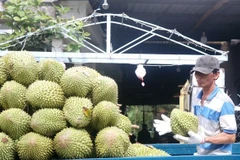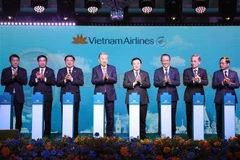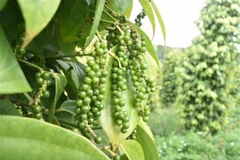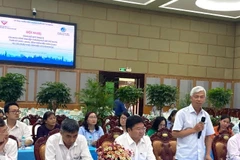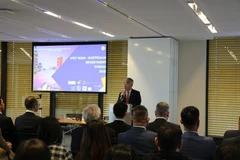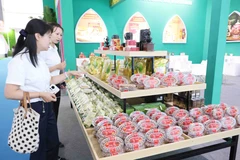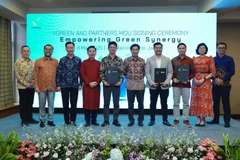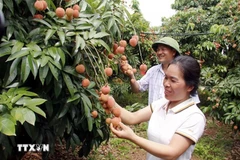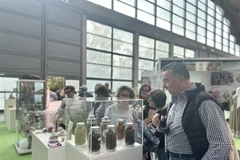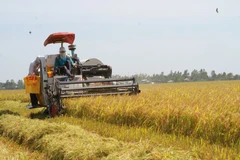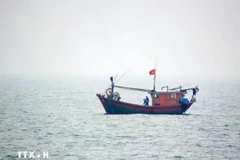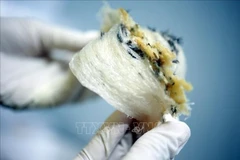Twenty-two hectares of the company's shrimp ponds have met ASC's environmental and social standards.
One of Vietnam's biggest shrimp exporters, the company has made major efforts in recent years to meet ASC's standards.
Founded in 1996, the company aims to produce 20,000 tonnes of shrimpthis year and up to 25,000 tonnes next year to supply customers in theUS, Japan, EU, Australia, Canada and the Republic of Korea.
The World Wide Fund for Nature (WWF) Vietnam, in cooperation with theSustainable Trade Initiative (IDH), has been working with Quoc Viet andother companies to help them achieve ASC certification.
Theparticipating companies also source shrimp from local small-scale farmsthat are seeking ASC certification in the future. Three more farmscovering 150 hectares are expected to receive ASC certification by theend of this year.
WWF will continue to support four additional companies and four small-scale farmer groups to achieve ASC certification.
Vietnam is the third biggest exporter worldwide of farmed shrimp, witharound 90 per cent of its total volume exported globally.
"With ASC certification, the farms can gain access to the internationalmarket and, in particular, European countries that demand responsiblyproduced and certified products," said Esther Luiten, ASC's commercialmarketing manager.
Thirteen shrimp farms from Vietnam and Ecuador have taken part in the ASC Shrimp Standard programme.
Through ASC certification, shrimp farms aim to reduce adverse impacton the environment and local communities by preserving wetlands andmangroves; address the transfer of viruses, and reduce disease; bringclean water and ensure the sustainable use of water; ensure theresponsible use of feed; and address biodiversity issues.
WWFhelps small-scale farmers and producers meet ASC standards through itsaquaculture improvement projects, by helping them improve theiroperations and capacity.
After farms meet the ASC standards, WWF links them to companies in the market that value ASC certification.
The Dutch-based Sustainable Trade Initiative established the Farmersin Transition (FIT) fund, a co-funding programme aimed at upscaling theproduction of responsibly farmed shrimp, tilapia and pangasius.
The programme partners - retail, food service and supply chaincompanies - have helped producers improve farming practices and haveactively engaged governments, industry and other stakeholders in theproducers' respective countries.-VNA


